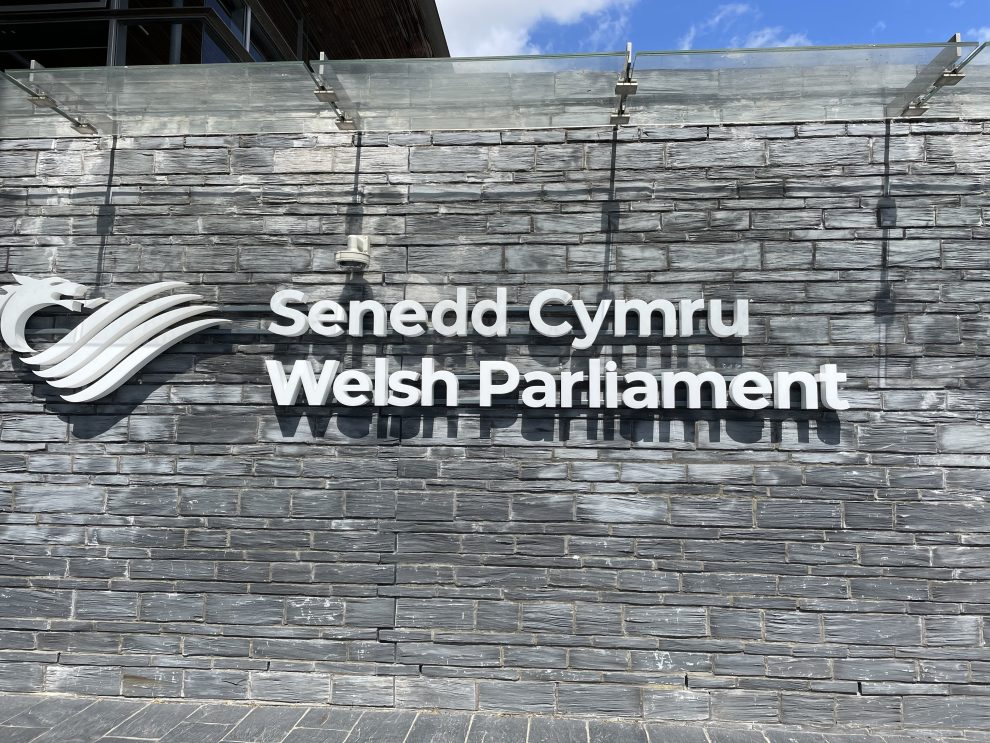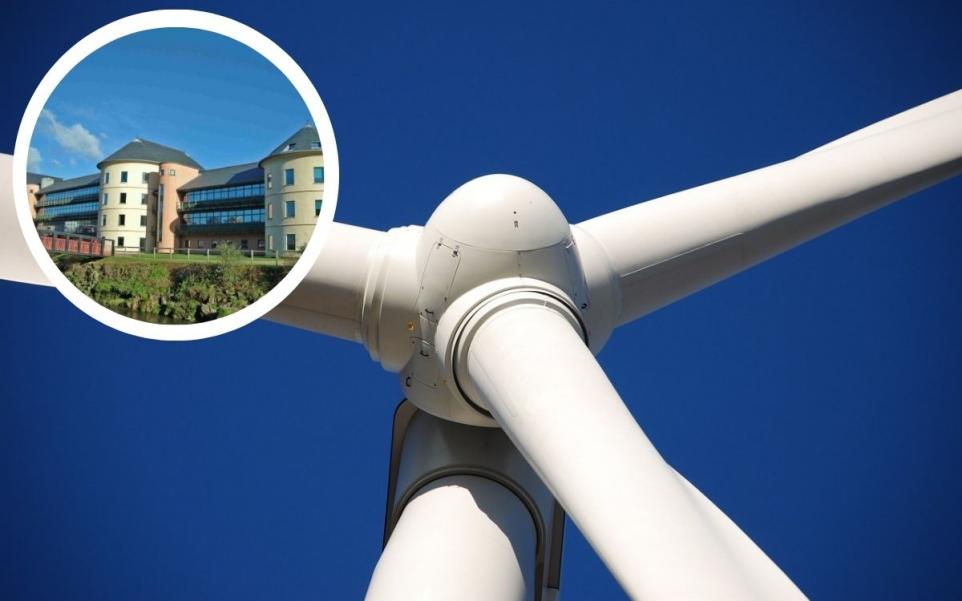Politics
Start of Term Report: Labour in Wales

PROFESSOR Roger Awan-Scully writes:
I have used this point in the political calendar – the return after the summer recess – to assess the current electoral standing of the main parties in Wales.
Over the next couple of weeks, I intend to revive this custom, and address a single, simple question: with just a few months until the Senedd election, where do each of the main parties stand?
I begin this series of pieces with an assessment of the position of Wales’ long-dominant party, Labour.
A good place to start assessing the immediate prospects for a party is to review its immediate past. For Labour that recent past has been problematic. The December 2019 general election saw the party once again come first in Wales in both votes and seats – for the 27th general election in a row. But such an outcome has rarely felt less victorious.
Across the UK, Labour suffered their worst post-war general election defeat. Even in its ultimate bastion of Wales, Labour lost six parliamentary seats, thus achieving their lowest number of Welsh MPs since the debacle of 1983; the party also saw its vote share drop by a full eight percentage points on 2017 – a decline that was actually slightly worse than their Britain-wide average.
The closer you looked at the general election result for Welsh Labour, the worse it got.
Labour’s vote share fell in 39 of the forty Welsh seats (with exception being Montgomeryshire, where they were never remotely in the running).
In north Wales, only Mark Tami hanging on by a whisker in Alyn and Deeside prevented a complete Labour wipeout, and even seats like Wrexham that had been Labour for decades were lost.
Yet while north Wales was where the map changed colour most obviously, in other places Labour’s decline was even starker.
There were seven seats, all in south Wales, where the fall in Labour vote share was greater than in any of the six seats that were lost. Even in many places where the electoral map remained red, Labour was in significant retreat.
And the December disaster was not a one-off.
In the unplanned for European election earlier in 2019, Welsh Labour accrued their lowest vote share at any Wales-wide election since before World War I, and finished behind Plaid Cymru in such a contest for the first time ever.
The months that followed saw Welsh Labour’s opinion poll ratings, for both Westminster and the Senedd, reach the lowest levels ever recorded; they also saw the Labour candidate barely saving his deposit in the Brecon and Radnor by-election.
Since the general election, of course, an enormous amount has changed. One thing that will surely be of long-term importance is that the UK party is now led by Sir Keir Starmer, not Jeremy Corbyn.
While the circumstances of recent months have limited Starmer’s ability to reach out to the British public, the polling evidence already indicates him doing better with them than his predecessor ever managed. But those circumstances – the Covid-19 pandemic and its manifold implications – have become the defining political reality of the present.
In Wales, as across Britain as a whole, Labour’s poll ratings have largely been driven by public evaluations of the Conservative UK government’s handling of Covid. In the first few weeks of the crisis (as was seen in the April Welsh Political Barometer poll), the public largely ‘rallied to the flag’; these tendencies were reinforced for a while by personal sympathy extended to a severely unwell Prime Minister Johnson. As public evaluations of the UK government’s handling of Covid-19 have subsequently worsened, the electoral position of Labour has improved.
It has long been the case that Welsh devolved elections are influenced by the Britain-wide political context. But to an even greater extent than usual, Welsh Labour’s electoral prospects for May 2021 are likely to be shaped by factors wholly out of its control.
The most obvious of these factors is Covid – the development of the disease and treatments for it, the manifold social and economic implications of the crisis, and public evaluations of how the UK government addresses these problems. But another important issue will likely be Brexit, a project that is, of course, very closely identified with Prime Minister Johnson.
Having formally left the EU at the end of January 2020, the UK is due to depart the union’s economic space by the end of this calendar year; how smoothly that occurs will do much to shape public reactions to the Conservatives and, in consequence, the political fortunes of Labour.
One Britain-wide factor that is surely positive for Welsh Labour is that they are no longer shackled to the electoral corpse of Corbynism. Yet even that positive may be limited in value: in Wales, as across Britain, it is likely to take some time for damage done to the Labour brand to be repaired.
When you have been publicly punching yourself in the face for nearly five years, it takes a while for voters to forget.
Having said all that, Welsh Labour can still shape its own electoral fate.
How the Welsh Government has handled Covid within Wales will surely be subject to extensive scrutiny over the next few months. The outcome to the Senedd election will also affected by the effectiveness of campaigning and leadership within Wales. In these respects, things are looking rather better for Labour than they were. Mark Drakeford’s first year as Welsh Labour leader could scarcely have gone much worse: not only were there the election and polling results for the party discussed above, but public evaluations of him personally were similarly dreadful. Large proportions of Welsh voters didn’t know who he was, and those who did were generally unimpressed.
But the Covid crisis has substantially enhanced the First Minister’s public visibility, and the seriousness of the crisis has played to his strengths. Mark Drakeford will never be a natural at ‘retail politics’, but the most recent Welsh Political Barometer poll suggested, for the first time ever, that he could become an electoral asset for his party next May rather a significant liability.
The electoral battleground onto which Welsh Labour and their opponents will march is one defined by the 2016 result. That constituted an overwhelmingly successful rearguard action by Welsh Labour: against a difficult UK-wide context their vote share fell substantially on 2011, yet the party lost only one seat.
Many seats that Labour had won very comfortably in 2011 became significantly more marginal in 2016, whereas seats they had come close to gaining five years previously now receded from view. Thus, the results from 2016 show that there are nine Labour-held constituencies that could fall on a lower swing than would needed for Labour to gain their most marginal target seat of Aberconwy (where Labour would need a 3.35 percent swing to gain the seat, coming from third place).
While some of the apparently marginal seats from 2016 (such as Cardiff West and Blaenau Gwent) may present a misleading picture due to specific local circumstances, the overall picture suggested by the above statistic is surely correct: Welsh Labour in 2021 have much more potential to lose seats than to gain them.
Some geographical nuance is needed, however. In the North Wales electoral region, two Labour seats – Vale of Clwyd and Wrexham – are obviously marginal. However, on a difficult night for Labour where they lost both to the Conservatives, they might well gain a list seat in partial compensation, limiting their overall losses to one.
In Mid and West Wales, Labour’s potential losses are probably also capped at one seat: if Lee Waters were to be defeated in perennially-marginal Llanelli that would solidify even further the party’s two regional list seats.
It is in south Wales were the potential action lies.
Labour’s continued dominance of the Senedd is based on their grip over the constituency seats in the three southern electoral regions. The majority of these seats have been uninterruptedly Labour for the entire lifetime of the Senedd; indeed in South Wales West the total number of constituency contests Labour have ever lost is zero.
The limited number of regional list seats here is wholly insufficient to compensate the other parties proportionally for Labour’s constituency dominance. The converse of this is that any Labour losses here would be pure losses: the party would need to sustain multiple constituency defeats in any one region before it became likely to gain any list seats in compensation.
If the non-Labour forces in the Senedd are ever to crack Labour’s dominance of the chamber (at least under the current electoral system) then they have to make serious inroads into the south Wales constituencies: there is simply no alternative.
The next Welsh Political Barometer poll (coming soon!) will provide the latest evidence on how Labour and their opponents are currently doing.
But no party has yet finished within ten seats of Labour at a Senedd election. It would take a brave or foolhardy person to bet against their dominance of devolved politics ending in May 2021.
News
Too many children in Wales living in poverty – Lib Dems want action

THIS week in the Senedd, the Welsh Liberal Democrats renewed their demands for the implementation of child poverty targets.
According to a report from the Bevan foundation, 29% of children living in Wales are currently experiencing poverty (an estimated 190,000 children).
The same report highlighted that the largest percentage of children living in poverty are from working households or in couple households.
The Welsh Lib Dems are now renewing calls for the Welsh Government to create a set of targets for reducing child poverty, which the party argues will allow for more accountability.
The party has previously called for the implementation of targets, citing recommendations from the Calling Time on Child Poverty Report published in November last year.
Commenting, the Leader of the Welsh Liberal Democrats Jane Dodds MS said: “The latest statistics on childhood poverty in Wales paints a very distressing image of families across the country struggling to make ends meet.
Over the course of the last six years, the proportion of children in poverty has skyrocketed. Fuelled by worsening economic conditions and a complete lack of action from both governments in Westminster and Cardiff Bay.
We cannot act complacent about these figures nor accept the clear lack of progress in fighting child poverty, behind each statistic is a child that the state has failed.
It remains painfully clear that the Welsh Government is failing to make any meaningful progress in this fight, which is why they must follow through with the implementation of clear set targets that will allow for further accountability.
We as a party have continuously called for the creation of these targets and we will not be silenced. For the sake of future generations we urge the Welsh Government to listen.”
Education
Conservative calls for academies and free schools rejected by Senedd

THE SENEDD has rejected calls to introduce free schools and academies after a report found major challenges in Wales’ education system.
Tom Giffard led a Conservative debate on educational attainment, warning that Wales is consistently at the bottom of UK-wide league tables.
The party’s new shadow education secretary pointed to an Institute for Fiscal Studies (IFS) report on education in Wales which found low outcomes and high levels of inequality.
Mr Giffard told the Senedd the IFS report highlights the pitfalls of the Welsh Government putting all its eggs in the basket of a skills-based approach.
Criticising a failure to measure skills inequalities and pupil progress, he stressed that Wales’ lower performance is due to policy and approach rather than funding or the pandemic.
He said: “It seems the Welsh Government relies on Pisa results to tell the story but then, when those same results are all too disappointing, they are dismissed in equal measure.”
Mr Giffard, who previously worked in a primary school, said declines in Pisa results can be observed in almost every country that has adopted a skills-based approach.
Raising concerns about disappointing Pisa results, the South Wales West MS pointed out that Wales saw the lowest scores in the UK for every subject.
Heledd Fychan, Plaid Cymru’s shadow education secretary, warned that Wales’ schools are understaffed and facing difficult decisions due to budgets being at breaking point.
She criticised implementation of the Welsh Government’s additional learning needs (ALN) reforms, saying schools cannot realise the aims without the budget to bring them to life.
Ms Fychan said Plaid Cymru agreed with much of the Tory motion but her party would not support calls for free schools and academies.
Sam Rowlands described the IFS report as damning, warning that the Welsh Government’s education reforms have been disastrous and have widened inequality.
The Tory MS claimed the reforms are systematically holding back disadvantaged children, saying: “The most remarkable fact is that the performance of disadvantaged children in England is either above or similar to the average for all children in Wales.”
Mr Rowlands added: “The poorest in England’s schools are doing the same or better than the Welsh average, thanks to ambition, the academies and free schools.”
Samuel Kurtz, a fellow Tory, said free schools and academies have driven up standards in England as he argued a Wales roll-out provides an opportunity to improve outcomes.
James Evans, the Conservative MS for Brecon and Radnorshire, highlighted the party’s pledge to get 5,000 more teachers into Wales’ classrooms.
Buffy Williams, the newly elected chair of the Senedd’s education committee, said Wales is undergoing a profound transformation propelled by ALN and curriculum reforms.
The Labour MS for Rhondda stressed the importance of listening to teachers and allowing ample time for the reforms to take root in classrooms across Wales.
Altaf Hussain recounted a conversation he had this week with a headteacher at one of the largest schools in his South Wales West region.
The Conservative said: “The major improvements they have been delivering to attainment and addressing behavioural issues are all at risk because of cuts to funding.
“Vital work undertaken to improve the lives of young people with additional needs could be halted because they cannot afford to continue employing the support workers.”
Lynne Neagle recognised the scale and seriousness of work still ahead to improve Wales’ education system, stressing: “I am not, in any way, complacent about that task.”
Wales’ newly appointed education secretary, who takes over from Jeremy Miles, said sustained improvement in attainment will be among her top priorities.
She told the chamber: “My early focus has been to listen closely to schools and where it is clear that schools seek more scaffolding.”
Ms Neagle said the Welsh Government will work with trade unions and employers to reduce workload and eliminate unnecessary red tape.
The Conservative motion was voted down, 14-35, following the debate on April 24. The motion as amended by the Welsh Government was agreed, 26-23.
Climate
£1m turbine application to be decided by all councillors at County Hall

A TWICE-BACKED £1m scheme for a “20-storey-high” wind turbine at a Pembrokeshire mansion will have to be decided by all councillors.
Mr and Mrs Glen Peters of Western Solar Ltd are seeking permission for a single turbine on land near the Grade II-listed Rhosygilwen Mansion, which includes an arts and functions building known as Neuaddydderwen.
Members of the April meeting of Pembrokeshire County Council’s planning committee were recommended to refuse the scheme, despite backing it at their March meeting.
This backing meant the application returned to the April meeting for ratification after a ‘cooling off’ period; the application having been deferred at the January meeting pending a site visit.
It was initially recommended for refusal in January for several reasons, including potential harm to the setting of the Grade-II-listed house and grounds, and fears of threats to the safe operation of West Wales Airport at Aberporth in neighbouring Ceredigion, some 9.5 kilometres away.
The last concern was later withdrawn.
In papers ahead of the April meeting, officers, again recommending refusal, have said the scheme “would not protect or enhance the setting [of Rhosygilwen] but rather would result in significant harm to this interest of acknowledged importance”.
They have also warned any backing of the scheme against policy recommendations could set a precedent for similar developments.
-

 News6 days ago
News6 days agoPolice issue update on the search for Luke, missing from Pembroke Dock
-

 News1 day ago
News1 day agoPolice and air ambulances at ‘serious incident’ at West Wales school
-

 News5 days ago
News5 days ago20mph U-turn: Some roads will return to 30mph following public outcry
-

 Community5 days ago
Community5 days agoMiracle pup finds her forever home after heart-wrenching journey
-

 Crime1 day ago
Crime1 day agoPembrokeshire pensioner accused of 17 sexual offences against children
-

 Crime9 hours ago
Crime9 hours agoAll three school stabbing victims discharged from hospital, police confirm
-

 Community2 days ago
Community2 days agoCounty Hall to offer space for community banking
-

 Crime3 days ago
Crime3 days agoBrian Davis: Wanted on suspicion of commercial burglary
























